Converting coal would help China's smog at climate's expense
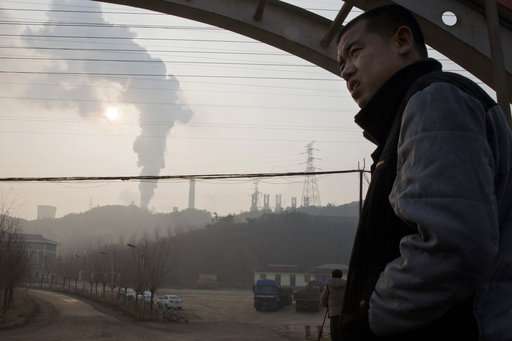
China's conversion of coal into natural gas could prevent tens of thousands of premature deaths each year. But there's a catch: As the country shifts its use of vast coal reserves to send less smog-inducing chemicals into the air, the move threatens to undermine efforts to rein in greenhouse gas emissions, researchers said Tuesday.
The environmental trade-off points to the difficult choices confronting leaders of the world's second largest economy as they struggle to balance public health and financial growth with international climate change commitments.
Between 20,000 and 41,000 premature deaths annually could be prevented by converting low-quality coal in the country's western provinces into synthetic natural gas, according to the findings of researchers from the United States and China published in the Proceedings of the National Academy of Sciences.
The deaths averted would carry a price, however. A line of new coal-to-gas plants envisioned by China's government would "dramatically increase" carbon dioxide emissions, according to the researchers and a separate report released Tuesday by Greenpeace.
China's immediate drive to clean up air quality could be addressed by using coal-produced synthetic gas, said study co-author Denise Mauzerall, a professor of environmental engineering and international affairs at Princeton University.
Doing so, however, "would have an effect of increased carbon emissions, which would affect the world," Mauzerall said.
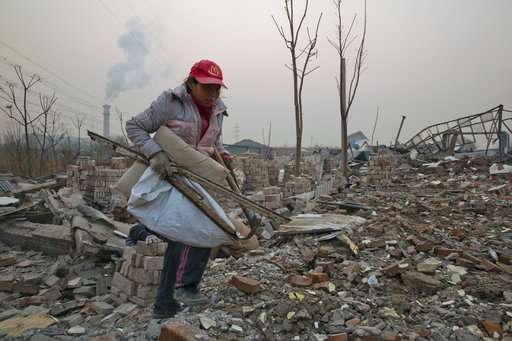
Natural gas produces far fewer of the tiny particles of pollution that pour out of coal-fired power plants and the small coal burners that many Chinese use for heating and cooking. That smog, with particles a mere 2.5 microns in diameter, frequently blankets Beijing and major urban areas in China's densely populated eastern provinces. It endangers public health when the particles lodge in peoples' lungs.
Public outrage over smog and a desire to meet climate goals prompted Chinese officials to close down coal power plants around Beijing in recent years and suspend plans to construct new plants across the country.
Technology to turn coal into other fuels dates to Germany's Nazi regime, which used it to bolster diesel supplies during World War II. South Africa used it to thwart sanctions against oil imports during the apartheid era. Since then, the method has seldom been used because of its high cost.
China's pursuit of synthetic gas reflects in part the inability of its domestic oil and gas reserves to meet its national security and economic needs, said Ranping Song, a climate expert with the World Resources Institute. That's despite the fact that China has the third largest coal deposits in the world, an estimated 126 billion tons (114 metric tons), behind only the U.S. and Russia.
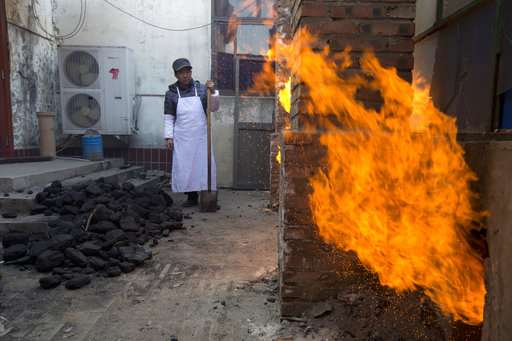
Compared to burning coal directly for power, converting it into gas and then using that gas to produce electricity can produce up to twice as much carbon dioxide, considered the prime culprit in climate change, Song said. Synthetic natural gas produces carbon dioxide first during the processing stage and again when the fuel is burned.
The coal-to-gas plants in China combined could emit as much as 158 million tons (143 million metric tons) of additional carbon dioxide annually, according to Mauzerall and her colleagues.
Greenpeace forecasts even more—up to 451 million tons (409 million metric tons) of extra carbon dioxide annually by 2020. That's about 4 percent of China's 2016 total emissions, making it more difficult to achieve the government's planned greenhouse gas reduction goals, said Greenpeace climate and energy campaigner Gan Yiwei.
The environmental group's tally includes projected emissions from the coal-to-gas fleet plus several dozen more plants that would turn coal into oil and various chemicals. Gan said China instead should invest more in wind and solar plants, which produce neither carbon nor smog.
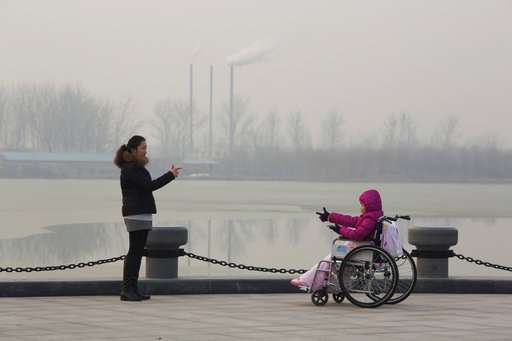
With the coal-to-gas plants, China's goal to stabilize its world-leading carbon emissions of about 10 billion tons (9.1 billion metric tons) annually by 2030 would remain achievable but more difficult, Song said. A driving factor will be whether the country can transform its economy away from energy-intensive manufacturing to more service-based industries, he said.
Not all proposed coal-to-gas plants will be put into operation by their original completion dates.
Competition from imported fuel transported by ship and pipeline from central Asia has squeezed the market, delaying plants proposed or under construction, said Zhouwei Diao, a coal and gas industry analyst with IHS Markit in Beijing.
Liquefied natural gas delivered to China's coast is cheaper than producing the fuel from coal, a further disincentive for the new plants unless global gas prices increase, she said. Local environmental issues also come into play because of large volumes of water the plants need to operate and the wastewater they generate.
"The technology is doable but it's currently not very reliable," Diao added.
-
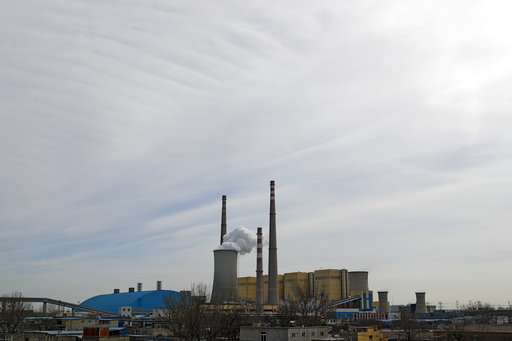
In this file photo taken Tuesday, Feb. 28, 2017, white smoke and steam rise from the China Huaneng Group's Beijing power plant that was the last coal-fired plant to shut down on March 18, 2017 as the Chinese capital convert to clean energy like thermal power. Researchers say Tuesday, April 25, 2017 that China's conversion of coal into natural gas could prevent tens of thousands of premature deaths annually. But there's a catch: It also could undermine efforts to rein in greenhouse gas emissions. (AP Photo/Andy Wong, File) -
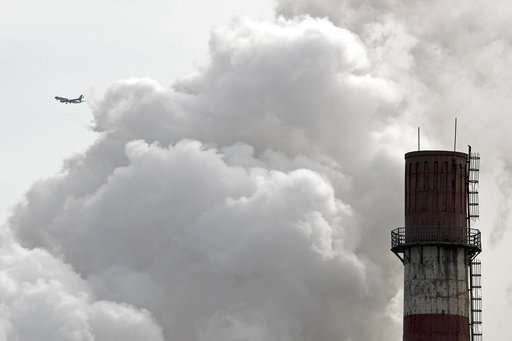
In this file photo taken Tuesday, Feb. 28, 2017, a passenger airliner flies past steam and white smoke emitted from China Huaneng Group's Beijing power plant that was the last coal-fired plant to shut down on March 18, 2017 as the Chinese capital convert to clean energy like thermal power. Researchers say Tuesday, April 25, 2017 that China's conversion of coal into natural gas could prevent tens of thousands of premature deaths annually. But there's a catch: It also could undermine efforts to rein in greenhouse gas emissions. (AP Photo/Andy Wong, File)
More information: Yue Qin el al., "Air quality, health, and climate implications of China's synthetic natural gas development," PNAS (2017). www.pnas.org/cgi/doi/10.1073/pnas.1703167114
Journal information: Proceedings of the National Academy of Sciences
© 2017 The Associated Press. All rights reserved.




















